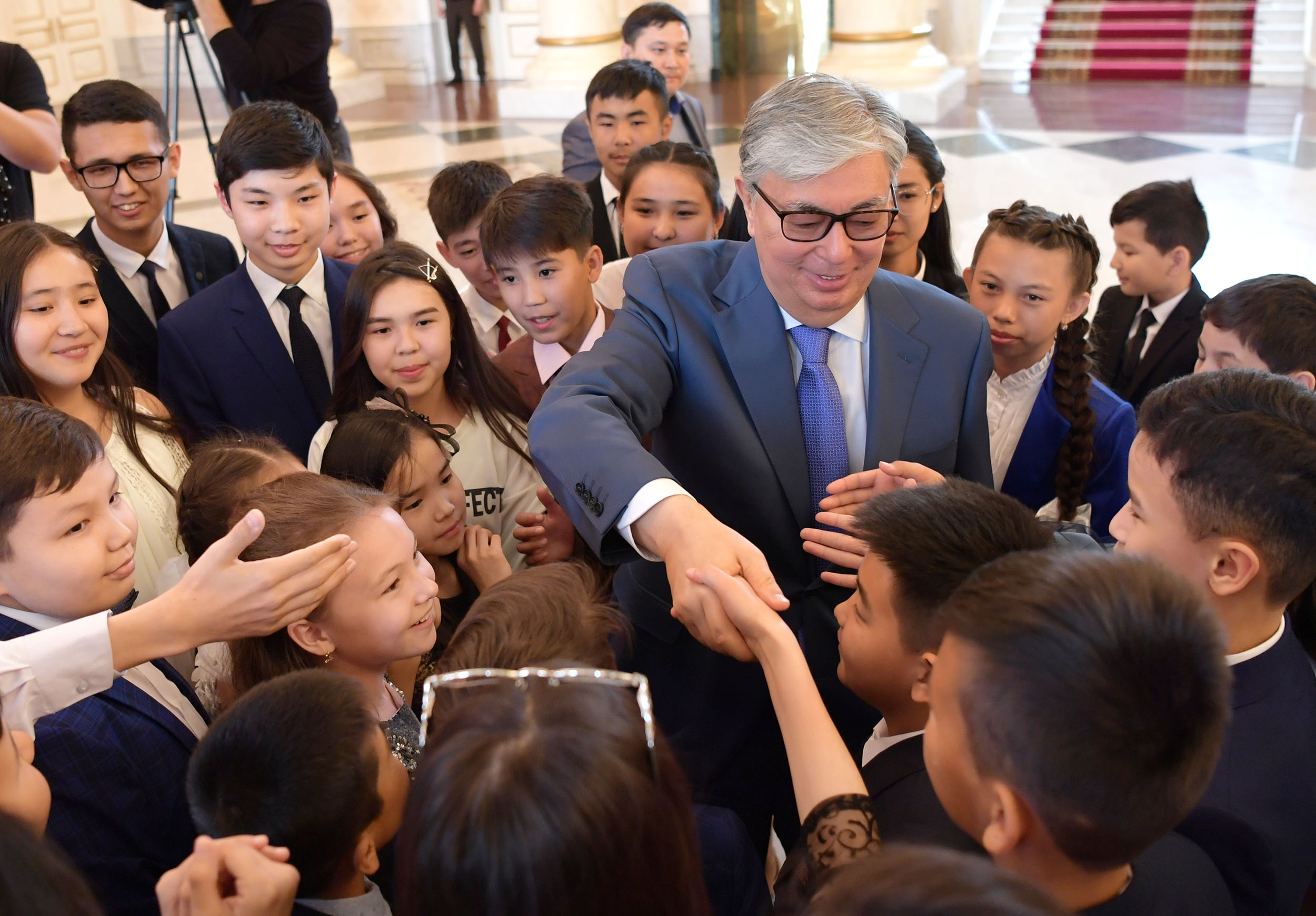ASTANA – President Kassym-Jomart Tokayev signed the law on introducing amendments and additions to some legislative acts on education, mentoring and child safety on Feb. 23, reported the Akorda press service.

Photo credit: akorda.kz
Askhat Aimagambetov, chairman of the Committee on Social and Cultural Development of Mazhilis, the lower house of Parliament, explained the core issues being addressed within the framework of the act in his Telegram channel.
The act included guidelines on enhancing safety within educational environments and expanding access to education.
It bans the construction of high-rise buildings without prior provision of schools and kindergartens. It also prohibits the privatization of public schools and colleges.
The law instructs that buildings of schools, kindergartens and colleges that have been in use for longer than 30 years be inspected for emergencies every five years. Colleges and schools also took over the right to use the income from paid services for their own development without transferring it to the budget.
The law also gave the heads of educational institutions the right to change the staffing table within the approved number of personnel. “For example, the headmaster may dismiss one of the deputies and introduce an additional position of a psychologist, lawyer or defectologist,” wrote Aimagambetov.
A special rule restricting the use of cell phones during lessons has been introduced. “The restrictions apply only to class period. A child can bring a phone to school and use it during break time. There are no restrictions in this respect. During the classes, the child must be engaged only in learning,” said Aimagambetov.
Under the new law, windows in high-rise buildings must be equipped with special safety mechanisms or locks to prevent children from falling.
Additionally, a new regulation banning exams for first-grade entry has been adopted. Its central tenet was that selecting children as young as six years old through examinations is ineffective. It also prohibits the distribution of religious or any harmful information in educational institutions.
In an effort to reduce corruption, the processes of placing a child on the waiting list and enrolling him or her in kindergarten, as well as the hiring and certification of education personnel, will be carried out through a single information platform, said Aimagambetov.
Amendments in the law reveal that college education is also the government’s priority.
For this reason, a norm was adopted, allowing colleges to provide students who undergo internships in production companies the option to voluntary insurance against potential dangers and occupational hazards.
A norm simplifying the licensing of colleges was also introduced. Now, the license is issued not according to qualifications but to specialties.
To maintain a high quality of education in medical and pedagogical spheres, a restriction on online education in those specialties was introduced.
The law also pushed forward the proactive admission of children with deviant behavior or those on the in-school register in sports clubs and hobby groups to additional education.
Child protection and education law has improved, but further changes are still needed, according to Aimagambetov.
“There were other important amendments that were not supported by the government’s conclusion. However, as the author of these norms, I can assert that provisions against changing the intended purpose of land allocated for schools, reserving land for kindergartens and other norms will be included in other draft laws,” he said.

